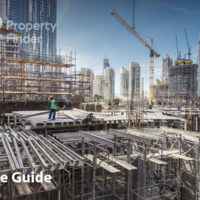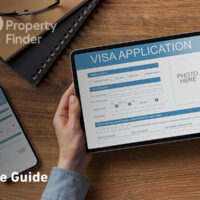Shopping for home insurance is the first thing one must pay attention to when buying or renting a house. Home insurance is a safety net that homeowners and tenants can rely on in case the property gets damaged. Explore here how to start looking for a home insurance company along with the top things to consider. Such as coverage, how to compare home insurance quotes and more.
What is Home Insurance

Home insurance, property insurance, or homeowner insurance are different names delivering the same concept. Which is providing a policy that protects your property financially against all sorts of risks – natural or human-caused. Moreover, this policy is an agreement with an insurance company, which includes various key components in agreement with the client. Such as coverage, exclusions, conditions, time limits, and quotes.
Home and Building Insurance Types

In addition, homeowner’s insurance varies in type and coverage. This variety is very convenient, as it makes insurance customisable to every client’s needs. There are standard home insurance types known globally, and they are:
- Dwelling or real property coverage – insurance covering the land, structure, building, built-in appliances, et cetera.
- Personal property or belongings coverage – which includes the contents of one’s home. Like furniture, clothing, appliances, and more.
- External property coverage – this covers detached structures such as a fence or a gazebo.
- Displacement compensation – if an individual cannot live in their house due to an event covered by the policy, like a natural disaster. Then the insurance company covers the bills of staying in a hotel.
- Public liability insurance – covering any expenses that surface due to a legal responsibility such as legal or medical bills.
- Healthcare Coverage – covering any medical bills for individuals injured on your property as per policy.
- Home emergency insurance – a policy issued in case you need instant emergency assistance for unexpected emergencies. This includes urgent repairs that cannot wait.
Note that these are the types of insurance for property according to the official portal of the UAE Government. Also, there are additional types of insurance in general. Such as life insurance, health insurance, and liability insurance.
Benefits of Home Insurance

As mentioned before, insuring your property will be like having a cushion to fall on in emergencies. No matter how safe an area is, having home insurance is always the smart thing to do. Because this includes insuring against natural incidents as well as deliberate ones. Overall, getting property insurance will have various benefits, such as:
- Protecting your property from natural disasters, such as floods, hurricanes, and earthquakes.
- Offering compensation for lost or damaged personal belongings
- Taking care of legal and medical fees in case you need liability protection
- Protecting you from theft, arson, and other deliberate incidents
- Offering great peace of mind, as it is a financial cushion that you can rely on
- Having inclusive protection for your home inside and outside
- Offering security for those taking a home mortgage
UAE Insurance Regulations
In addition, it is worth noting that the Central Bank of the UAE (CBUAE) takes over regulating the insurance sector. This happened after the merger with the Insurance Authority into CBUAE back in 2020. According to the UAE’s governmental portal for insurance, these are some of the regulations:
- Insurance consultancy and actuary
- Capital regulations
- Supervision fees
- Ethics and code of conduct.
- Financial regulations
- Sanctions and bank assurances
Things to Consider When Shopping for Home Insurance

To shop for home insurance in the UAE or anywhere in the world. You must keep in mind certain considerations to choose the best property insurance policy. Also, this helps greatly to understand how to insure an apartment in Dubai for example. Here are the key tips to help you choose the best home insurance policy for you.
1. Understand Your Needs
The first thing to do when getting home insurance is to assess your needs. This includes knowing your home’s contents and evaluating them to determine the right coverage level. When doing so, keep in mind things like rebuilding, repairs, item replacement, and other risks.
2. Be Familiar with Coverage Types
The homeowner’s insurance coverage types vary greatly as you can see above. Study them thoroughly and choose the best type for you.
3. Research Companies and Policies
Do not be hasty when hiring an insurance company. Take your time to research companies and see how reliable and trustworthy they are. Afterwards, explore each company’s insurance policy and what it entails. This is why assessing your needs is important, as you will know what to look for in an insurance policy.
4. Compare Quotes

Fourthly, it is very important to compare insurance companies’ quotes. This will help you find the best deal for coverage. Also, when comparing quotes, you will have some leverage to negotiate with insurance companies. Thus getting the best deals at the most reasonable prices.
5. Be Aware of the Limits and Exclusions
Each policy includes its own exclusions and limits, so make sure to understand them fully. This will ensure you get a tailored policy to your needs while also getting your money’s worth.
6. Check the Deductible Amount
A deductible amount is the amount of money you will have to pay before insurance kicks in. Think of it like an upfront cost going out of your pocket. Also, note that sometimes high deductibles can lower your premium – which is the cost you pay monthly or annually.
7. Stay Up to Date with the Discounts

If you have already chosen an insurance company, make sure to stay informed about their discounts. Some insurance companies offer money-saving property and vehicle bundles. So, make sure not to miss such discounts.
8. Consider the Upgrades
Standard policies entail basic coverage that might be satisfying at first. However, you may feel like you want to upgrade after a while. If so, ask your policymaker for additional coverage and special deals.
9. Read the Final Draft
Once again, do not be hasty in finishing up the paperwork. Make sure you read the policy’s final draft and ensure it is to your agreement. Reading the final draft will help avoid future misunderstandings with the insurance company.
10. Keep Reviewing Annually
Keep reviewing your home insurance policy annually – especially when it is time to renew it. Doing so will help cut down on unnecessary costs or add extra coverage.
11. Make use of the Home Insurance No Claims Discount
Lastly, many policies include a “property damage claim” clause. A damage claim is when the property is damaged and is in need of repair, or replacement. However, some companies reduce quotes for clients who do not use their claims. While other companies give rewards when this clause is not used. See what your insurance company has to offer and make sure of that!
FAQ
Most of the insurance does cover it. However, it may depend on the policymaker, if this is important to you, make sure they include it in your insurance policy.
Personal insurance covers the loss of all kinds of personal belongings, including jewellery.
Tax deductions do not extend to this sector in the United Arab Emirates.
In conclusion, shopping for home insurance in the UAE is not a hassle. But it does need strategic planning and thinking. In addition, make sure to explore more guides on Property Finder’s blog. Such as understanding home insurance in Dubai and more.




























